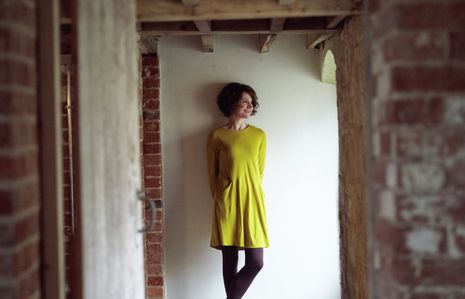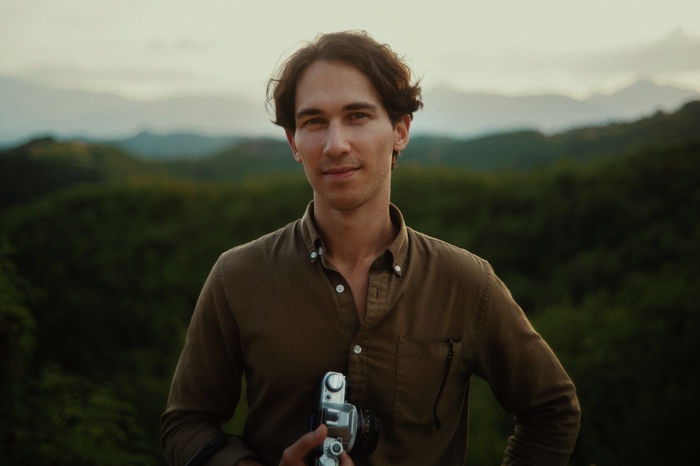‘Just ridiculously, relentlessly, curious’: Kate Romano on breathing life into the creative arts
Jack Marley sits down with Kate Romano to discuss her journey from studying at Cambridge to leading arts centre Stapleford Granary

Even over a video call, Kate Romano’s energetic and inquisitive spirit shines through, with her signature volume of hair and fringe swept dramatically across her face. Indeed, Romano’s career indicates a seemingly unlimited drive and energy.
After a degree in Composition and Clarinet from the Royal Northern College of Music, she came to Cambridge to do an MPhil in Composition at Caius, which led to a PhD at KCL, and then a post as deputy head of academic studies at Guildhall School of Music and Drama.
Stepping back from this, she entered an “absolutely adrenaline fuelled world of activity” as a freelancer, playing the clarinet, writing and presenting for BBC Radio 3, fundraising and producing operas, and even setting up her own charity to do so. More recently she has returned to the Cambridge area as CEO and co-artistic director of Stapleford Granary, an arts centre 6 miles outside of the city centre, which runs a varied programme of workshops, exhibitions, and musical concerts.
“For Romano, academic and creative practice sit side-by-side comfortably”
For Romano, academic and creative practice sit side-by-side comfortably. They are both manifestations of being “just ridiculously, relentlessly curious,” and never “want[ing] to stop learning”. She recounts feeling “bereft” at losing access to JSTOR after stepping back from her academic position, and crying in relief when she realised that she could access the site as a Cambridge alumna. Whilst Romano plays down the story as “a bit embarrassing,” it’s a profound reminder of the invaluable resource that academia is, even beyond formal study. “Without that access to [academic writing] I’m just lost,” she states.
I can only imagine that this relentless curiosity, mixed with her creative instincts and deep knowledge base, was a big reason for Romano getting headhunted for her current role at Stapleford Granary. She took over leadership of the Granary in 2020, an auspicious year to begin such an endeavour. Romano spoke of the challenges of rebuilding an audience as restrictions gradually eased, and the ongoing financial consequence of the pandemic. A silver lining was how she was able to “see the site in a totally different way because there was no business as usual.” She recounts spending a lot of time alone in the various spaces of the renovated Victorian granary, and “getting to know the site as a totally blank canvas”. This reimagining of the site’s potential ultimately led to the opening of a new café, now central to the centre’s daily life, and an outdoor venue in one of its courtyards.
Whilst the COVID-19 pandemic provided the backdrop to Romano’s early tenure at Stapleford Granary, it is another existential threat to the arts in 2020s Britain that contextualises one of the centre’s most successful ventures. A few years ago, Romano and her colleagues began collaborating with a local primary school, bringing children into the centre for events and workshops. “The arts provision generally in primary schools is impoverished,” Romano tells me frankly, with schools doing their best on very small budgets.
“The success of this programme can be seen in its impact on the children involved, who have come to call the Granary ‘the magic place’”
Stapleford Granary’s role is not simply to supplement resources that schools are unable to afford. Rather, the centre seeks to show these children the arts in a different light, “as lived experience compared to art as a taught subject,” exposing them to “people whose jobs [the arts] is” and helping them “understand what it is to live and breathe the arts”.
The success of this programme can be seen in its impact on the children involved, who have come to call the Granary “the magic place”. Not content with simply taking this as the glowing compliment that it is, her intellectual curiosity re-emerges: “Because, well, why?” she asks. “That’s been a big question for me, as to why they call it ‘the Magic Place’.” She refers to the scheme half-jokingly as her “laboratory,” using it to confront big questions about “what our role is as an art centre and what our role is as cultural educators.”
This unwavering interest in the people that visit Stapleford Granary, as much as the artistic program itself, sits at the heart of Romano’s work at the centre. With an office next to the main area of the site, she has “learned so much from that informal kind of observation” of surreptitiously overhearing visitors discussing the exhibitions, concerts, and events.

Minco van der Weide on his documentary ‘Portraits of Philosophers’
“If I didn’t do this job, I’m sure I would be an anthropologist,” Romano admits. “People think I do this job because I love music and it’s just not true at all. I do love music […] But really the fascination for me is the people.” There is much discussion about academia being an ivy tower. Talking to Romano, it was striking to see someone with an academic background who is inclined towards deploying these skills for local communities, particularly in the arts, threatened as they are in education and our economy.
 News / Cambridge academics sign open letter criticising research funding changes22 February 2026
News / Cambridge academics sign open letter criticising research funding changes22 February 2026 News / Supporters protest potential vet school closure22 February 2026
News / Supporters protest potential vet school closure22 February 2026 News / Student and union protesters hold ‘Trans Liberation Solidarity Rally’ 24 February 2026
News / Student and union protesters hold ‘Trans Liberation Solidarity Rally’ 24 February 2026 News / Union speakers condemn ‘hateful’ Katie Hopkins speech14 February 2026
News / Union speakers condemn ‘hateful’ Katie Hopkins speech14 February 2026 News / Hundreds of Cambridge academics demand vote on fate of vet course20 February 2026
News / Hundreds of Cambridge academics demand vote on fate of vet course20 February 2026









